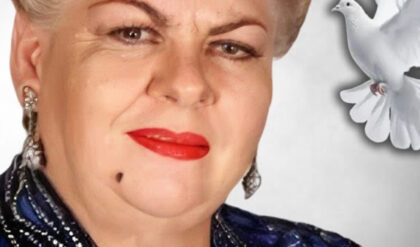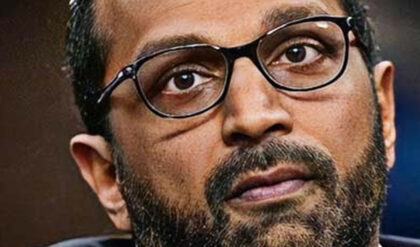When Michael Jackson, the King of Pop, passed away on June 25, 2009, a wave of shock and sorrow swept across the world. For his fans, it was the loss of an icon who had shaped decades of music, dance, and culture. Among the mourners, however, there was one conspicuous absence that left fans puzzled: Diana Ross, often referred to as Jackson’s “second mother,” did not attend his funeral. Her choice to grieve privately instead of joining the public farewell sparked curiosity, with fans and media alike asking why Ross, one of the closest figures in Jackson’s life, stayed away.
The answer lies within the unique, deeply emotional connection between Ross and Jackson, shaped by decades of friendship, mentorship, and mutual admiration. The reasons behind her absence are tied to her personal journey of grief, the intensity of their bond, and the quiet strength of a woman who preferred to mourn privately for the friend she cherished.
A Friendship Rooted in Music and Mentorship
The relationship between Diana Ross and Michael Jackson began in the late 1960s. At the time, Ross was a superstar with Motown, a trailblazer for Black female artists, and the lead singer of The Supremes. Michael Jackson, along with his brothers in The Jackson 5, had just signed with Motown, and Motown founder Berry Gordy saw an opportunity to introduce them to the world under Ross’s guidance. This move was not only a clever marketing strategy but the start of a lifelong friendship and mentorship that would help shape Jackson’s career.
:max_bytes(150000):strip_icc():focal(709x499:711x501)/michael-jackson-210aa5866c7d4dd58de8e3af57fe919a.jpg)
Ross became a mentor and confidante to Jackson. They shared a deep bond, with Ross guiding Jackson through the challenges of the music industry. The two spent significant time together, with Jackson even moving in with Ross for a period as his family transitioned to California. Ross’s influence on Jackson’s life was profound; she taught him the importance of connecting with audiences, performing with heart, and maintaining humility despite fame. Jackson credited Ross with teaching him much of what he knew about performance and showmanship.
Beyond Friendship: The Bond of a “Second Mother”
As Jackson grew older, his relationship with Ross transformed into one of deep familial affection. He often referred to her as his “second mother” and called her “Mama” in private. Jackson’s mother, Katherine, acknowledged this closeness, recounting in her memoirs how Michael was both fond of and infatuated with Ross. Their bond was complex, blending mentorship, friendship, and even hints of admiration that verged on romantic.
The strength of Jackson’s attachment to Ross was unmistakable. His love and respect for her went beyond mere friendship, and he expressed his affection in ways that showed how important she was to him. This devotion was so strong that Jackson filled an entire room in his home with photos of Ross — from her earliest days in The Supremes to more recent images. This “Diana shrine” reflected the deep and lasting impact Ross had on Jackson’s life and career.
The Day the World Stood Still
On June 25, 2009, the shocking news of Jackson’s death at the age of 50 sent waves of sorrow around the world. Fans, friends, and family members were left in disbelief. When news of his passing broke, Ross issued a heartfelt statement expressing her sorrow, describing Jackson as “a treasured part of my world.” She continued, “I am trying to find closure. I want you to know that even though I am not there at the Staples Center, I am there in my heart.” For Ross, the decision not to attend Jackson’s funeral was a deeply personal choice, rooted in her desire to mourn privately.

In the days leading up to Jackson’s funeral, Ross retreated from the public eye. She did not appear on news outlets or share additional public statements, choosing instead to grieve quietly. Friends close to Ross suggested that the shock and grief she felt were so profound that attending the funeral would have been overwhelming.
Speculation and Public Reactions
In the wake of Ross’s absence, media outlets and fans speculated about her reasons. Some theories pointed to possible health concerns, as Ross was 65 at the time and may have found the demands of attending such a high-profile funeral taxing. Others suggested that Ross preferred to avoid the public spectacle of Jackson’s funeral, opting for a private grieving process that allowed her to find peace in her own way. Ross’s statement emphasized this, noting that her decision to grieve privately was, for her, the right way to say goodbye.
While some media outlets questioned whether there were unresolved tensions between Jackson and Ross, these claims were largely unsubstantiated. The reality was that Ross’s decision to stay away stemmed from a deeply personal desire to mourn Jackson privately, away from the media spotlight.
A Legacy of Loyalty: Ross’s Role in Jackson’s Will
The strength of Jackson and Ross’s bond was further highlighted in his 2002 will. Jackson named his mother, Katherine Jackson, as the primary guardian of his children, Prince, Paris, and Blanket. However, if Katherine was unable to fulfill this role, Jackson designated Ross as the secondary guardian. This inclusion revealed Jackson’s immense trust and love for Ross. He saw her as someone who could step in and care for his children, reinforcing the importance of their connection.
:max_bytes(150000):strip_icc():focal(999x0:1001x2)/diana-ross-kids-tracee-2-1c11b8ff9885413db0672f0b8b8b3659.jpg)
Though Ross never had to assume guardianship responsibilities, her willingness to support Jackson’s children reflected her loyalty to Jackson. In a family visit, she promised his children, especially Paris, that she would be there if they ever needed her. Ross’s quiet commitment reassured fans and friends alike that she would always honor Jackson’s memory and be there for his children in times of need.
Life Beyond the Loss
After Jackson’s death, Ross continued to perform and release music, using her platform to honor his memory. Many of her performances were tributes to Jackson, showing how his influence and legacy continued to resonate with her. Her ability to balance her own grief with her public life spoke volumes about her strength and dedication.
Ross’s approach to fame, family, and friendship serves as a legacy of its own. She has continued to inspire fans and young artists, proving that it is possible to maintain dignity and authenticity even in the face of profound loss. Her decision to grieve privately for Jackson was a reflection of her respect for their bond and her desire to protect their relationship from media scrutiny.
A Final Tribute to an Unbreakable Bond
In the years since Jackson’s passing, Diana Ross has carried on with grace, honoring her friend’s memory in subtle but powerful ways. For her, the bond they shared was one beyond words, a connection that didn’t need a public display to be felt or understood. Her absence from Jackson’s funeral, rather than a sign of distance, was a testament to the deep, unspoken respect she held for the King of Pop — a choice to remember him in her heart rather than in the spotlight.
As fans continue to celebrate Jackson’s legacy, Ross’s quiet mourning reminds us of the personal toll that such losses take on those closest to the icons we revere. For Diana Ross, Michael Jackson was more than a friend, a mentee, or a fellow performer. He was family, and her choice to remember him in private, away from cameras and crowds, speaks to the depth and sincerity of a bond that will forever remain a poignant part of her story.





